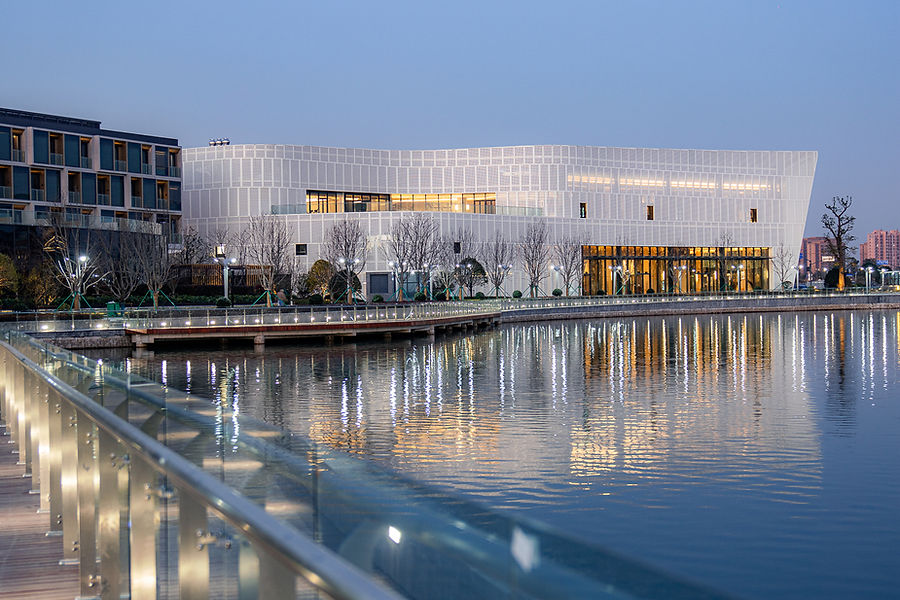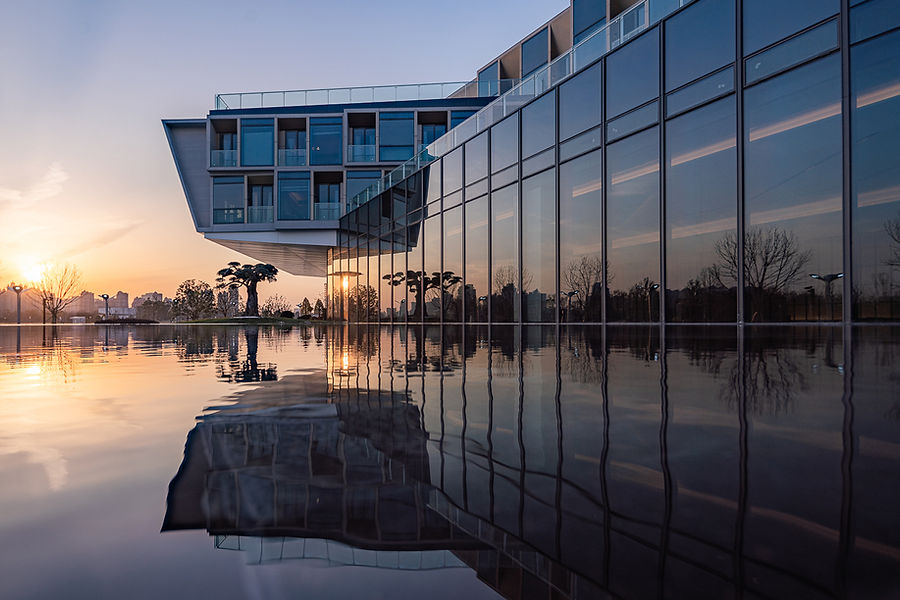The JW Marriott Hotel Shanghai Fengxian, designed by Gensler, is a stunning architectural marvel completed in 2021. Situated in the heart of the Jinhai Lake resort, an area centered around an artificially created lake, the hotel seamlessly integrates with its natural surroundings. This project marks the 50th Marriott International hotel in Shanghai, featuring 265 guestrooms and suites, each designed to offer panoramic views of the lake and the lush greenery that envelops the area.
The hotel’s design is inspired by the vision of water flowing over stones, emphasizing fluidity and harmony with nature. The building is structured atop three geometric bases, which not only support the structure but also house ground-floor amenities such as a convention center, dining spaces, and a lobby. This thoughtful design ensures that the hotel blends effortlessly into its environment while providing modern conveniences to its guests.

One of the most distinctive features of the JW Marriott Hotel Shanghai Fengxian is its dynamic, snake-like shape. This design not only maximizes the use of the long and narrow site but also makes the hotel a focal point within the emerging art, entertainment, and tourism-oriented neighborhood. The curving form of the east and west wings ensures that every room offers uninterrupted views of the lake, enhancing the connection between the interior spaces and the natural surroundings.
Inside, the hotel adopts a split-flow design, creating a green courtyard instead of traditional hallways separating the suites. This courtyard design invites natural light and air into the building, providing a serene and refreshing environment for guests. The circulation plan confines automotive traffic to the northern shore of the peninsula, creating a pedestrian-friendly environment on the southern side, thus exposing guests to vast, uninterrupted views of the lake.

Sustainability is a core aspect of the hotel’s design. Water elements on-site connect with adjacent water resources and landscaped parks, creating a unique water transit system that augments the hotel and conference experience. The hotel terraces feature clustered outdoor gardens, creating smaller enclaves where guests can enjoy the natural settings and vistas, fostering a deeper connection with nature.
In conclusion, the JW Marriott Hotel Shanghai Fengxian by Gensler is a perfect example of how modern architecture can harmonize with natural landscapes. It offers a luxurious and sustainable retreat that respects and enhances its environment, providing guests with a unique and memorable experience.
